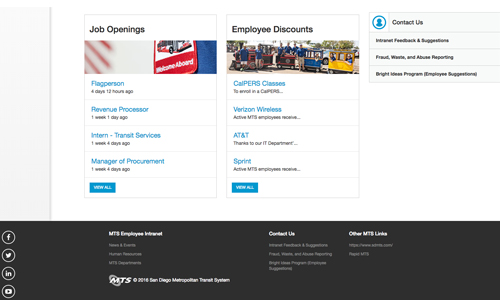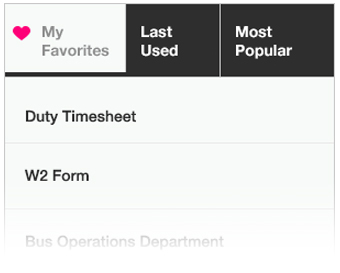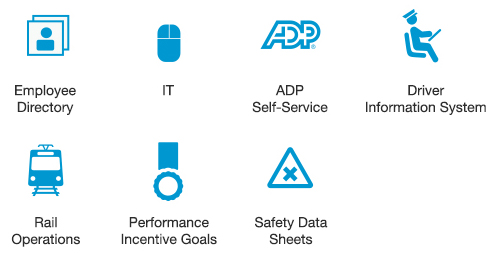You are here
Next-Generation Fare Collection System
Fare System Administrator Israel Maldonado sizes up his number one priority – fare collection
Compass Cards have been a mainstay in our fare collection vocabulary since 2006, but aging infrastructure and technological advancement has left our current fare collection system obsolete. MTS is heavily investing time and money into a new payment system that will be adopted by the time the Mid-Coast Trolley extension begins operations in 2021.
MTS users rely on Compass Card
√ 88% – Percentage of bus trips
√ 77% – Percentage of Trolley trips
“The next-generation fare system will move the agency away from the current card-based system in favor of an accountbased approach,” said MTS Fare System Administrator Israel Maldonado.
In the new system, users will continue to tap a card (or their mobile device) on a validator. The difference is that the validator will be able to deduct a fare from the balance stored in a user’s account instead of relying on information stored on a microchip in the Compass Card.
This will become possible thanks to the introduction of two innovations since the initial rollout of Compass Cards: cloud storage and cellular routers. By hosting user accounts on the cloud and installing cellular routers on all vehicles in the MTS fleet, nextgeneration validators will be able to receive near real-time updates whenever a customer loads or deducts value to their account.
This will be a big improvement over the current system, which operates on hardware without cellular router connections. Right now, our hardware system creates a lag time of 2-3 days between when a customer loads value through online payments to when it can be used on the system. With the next-generation fare system customers will be able to instantly begin deducting fares from their accounts.
“The account-based approach will open the door to greater possibilities, allowing MTS to give its customers more fare-payment options,” added Maldonado. “Near real-time communications means mobile wallets, contactless credit cards, mobile devices and Transit Cards can all be used.”
The next fare system will also allow MTS to adopt “fare capping,” in which the user’s account is not charged more than a Day Pass enough one-way trips are purchased. The passenger’s account would be “capped” at $5, rather than continuing to deduct oneway fares. The next fare system will also allow MTS to build a retail network, such as grocery stores and convenience marts, that will offer the new fare cards alongside other gift cards at the aisle endcap displays and checkout counters.
- Next-Generation Fare System Timeline:
- 2018: Procurement and Board Approval
- 2019: System Design
- 2020: Installation and Pilot Program
- 2021: Target Launch
Meet Israel Maldonado— Israel is the new Fare System Administrator at MTS, spearheading our agency’s efforts to adopt the next-generation fare system. A lot of work has already been accomplished, including a Request for Qualifications and the project’s Scope of Work, which has more than 250 pages of system details. Departments and employees from all corners of MTS will be involved, and Israel is charged with ensuring the new system meets the needs of everyone impacted by the new fare system. This will require careful coordination from Israel to ensure that the MTS’ next-generation fare system helps propel the agency in the right direction for years.
“My goal is to help design and implement a fare system that works for everyone and is future-proof,” said Israel. “This means adopting a system that has clear rules our passengers can understand, and is flexible-enough to respond to technology changes in the future.”
Israel has worked for MTS for 13 years. Prior to his current position he worked for three years as Revenue Manager for MTS Bus, and as Revenue and Compass Card Supervisor for MTS Rail for nine years. Israel has a background in accounting, and received his bachelor’s degree from the University of San Diego.

 Employee Directory
Employee Directory IT Help Desk
IT Help Desk ADP Self-Service
ADP Self-Service Driver Information System
Driver Information System Bus Operations
Bus Operations Rail Operations
Rail Operations Performance Incentive Program
Performance Incentive Program Safety Data Sheets
Safety Data Sheets




